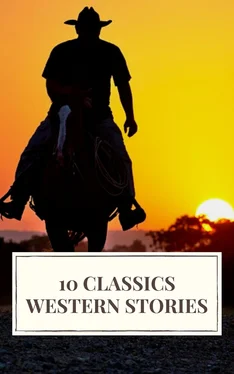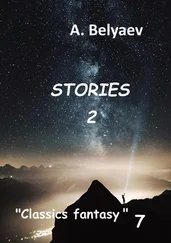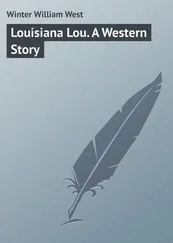A pale and ghastly chief rose to reply. It was evident that he was in the last extremity of disease.
“Shall we choose another war-chief to sit in Multnomah’s place? We may; but will he be Multnomah? The glory of the Willamettes is dead! Talk no more of war, when our war-strength is gone from us. The Bridge is fallen, the Great Spirit is against us. Let those who are to live talk of war. It is time for us to learn how to die.”
He sunk flushed and exhausted upon the ground. Then rose an aged chief, so old that it seemed as if a century of time had passed over him. His hair was a dirty gray, his eyes dull and sunken, his face withered. He supported himself with tremulous bony hands upon his staff. His voice was feeble, and seemed like an echo from the long-perished past.
“I am old, the oldest of all the Willamettes. I have seen so many winters that no man can count them. I knew Multnomah’s father. I went forth to battle with his father’s father; and even before that I knew others, warriors of a forgotten time. Or do I dream? I know not. The weight of the time that I have lived is very heavy, and my mind sinks under it. My form is bowed with the burden of winters. Warriors, I have seen many councils, many troubles, but never a trouble like this. Of what use is your council? Can the words of wise men stay disease? Can the edge of the tomahawk turn back sickness? Can you fight against the Great Spirit? He sent the white man to tell us of our sins and warn us to be better, and you closed your ears and would not listen. Nay, you would have slain him had not the Great Spirit taken him away. These things would not have come upon us had you listened to the white shaman . You have offended the Great Spirit, and he has broken the Bridge and sent disease upon us; and all that your wisdom may devise can avail naught to stay his wrath. You can but cover your faces in silence, and die.”
For a moment the council was very still. The memory of the white wanderer, his strong and tender eloquence, his fearless denunciation, his loving and passionate appeal, was on them all. Was the Great Spirit angry with them because they had rejected him?
“Who talks of dying?” said a fierce warrior, starting to his feet. “Leave that to women and sick men! Shall we stay here to perish while life is yet strong within us? The valley is shadowed with death; the air is disease; an awful sickness wastes the people; our enemies rush in upon us. Shall we then lie down like dogs and wait for death? No. Let us leave this land; let us take our women and children, and fly. Let us seek a new home beyond the Klamath and the Shasta, in the South Land, where the sun is always warm, and the grass is always green, and the cold never comes. The spirits are against us here, and to stay is to perish. Let us seek a new home, where the spirits are not angry; even as our fathers in the time that is far back left their old home in the ice country of the Nootkas and came hither. I have spoken.”
His daring words kindled a moment’s animation in the despondent audience; then the ceaseless wailing of the women and the panting of the sick chiefs in the council filled the silence, and their hearts sank within them again.
“My brother is brave,” said the grave chief who had opened the council, “but are his words wise? Many of our warriors are dead, many are sick, and Multnomah is gone. The Willamettes are weak; it is bitter to the lips to say it, but it is true. Our enemies are strong. All the tribes who were once with us are against us. The passes are kept by many warriors; and could we fight our way through them to another land, the sickness would go with us. Why fly from the disease here, to die with it in some far-off land?”
“We cannot leave our own land,” said a dreamer, or medicine-man. “The Great Spirit gave it to us, the bones of our fathers are in it. It is our land,” he repeated with touching emphasis. “The Willamette cannot leave his old home, though the world is breaking up all around him. The bones of our people are here. Our brothers lie in the death-huts on mimaluse island;—how can we leave them? Here is the place where we must live; here, if death comes, must we die!”
A murmur of assent came from the listeners. It voiced the decision of the council. With stubborn Indian fatalism, they would await the end; fighting the rebels if attacked, and sullenly facing the disease if unmolested. Now a voice was heard that never had been heard in accents of despair,—a voice that was still fierce and warlike in its resentment of the course the council was taking. It was the voice of Mishlah the Cougar, chief of the Mollalies. He, too, had the plague, and had just reached the grove, walking with slow and tottering steps, unlike the Mishlah of other days. But his eyes glittered with all the old ferocity that had given him the name of Cougar. Alas, he was but a dying cougar now.
“Shall we stay here to die?” thundered the wild chief, as he stood leaning on his stick, his sunken eyes sweeping the assembly with a glance of fire. “Shall we stand and tremble till the pestilence slays us all with its arrows, even as a herd of deer, driven into a deep gulch and surrounded, stand till they are shot down by the hunters? Shall we stay in our lodges, and die without lifting a hand? Shall disease burn out the life of our warriors, when they might fall in battle? No! Let us slay the women and children, cross the mountains, and die fighting the rebels! Is it not better to fall in battle like warriors than to perish of disease like dogs?”
The chief looked from face to face, but saw no responsive flash in the eyes that met his own. The settled apathy of despair was on every countenance. Then the medicine-man answered,—
“ You could never cross the mountains, even if we did this thing. Your breath is hot with disease; the mark of death is on your face; the snake of the pestilence has bitten you. If we went out to battle, you would fall by the wayside to die. Your time is short. To-day you die.”
The grim Mollalie met the speaker’s glance, and for a moment wavered. He felt within himself that the words were true, that the plague had sapped his life, that his hour was near at hand. Then his hesitation passed, and he lifted his head with scornful defiance.
“So be it! Mishlah accepts his doom. Come, you that were once the warriors of Multnomah, but whose hearts are become the hearts of women; come and learn from a Mollalie how to die!”
Again his glance swept the circle of chiefs as if summoning them to follow him,—then, with weak and staggering footsteps, he left the grove; and it was as if the last hope of the Willamettes went with him. The dense atmosphere of smoke soon shut his form from view. Silence fell on the council. The hearts of the Indians were dead within them. Amid their portentous surroundings,—the appalling signs of the wrath of the Great Spirit,—the fatal apathy which is the curse of their race crept over them.
Then rose the medicine-man, wild priest of a wild and debasing superstition, reverenced as one through whom the dead spoke to the living.
“Break up your council!” he said with fearful look and gesture. “Councils are for those who expect to live! and you!—the dead call you to them. Choose no chief, for who will be left for him to rule? You talk of plans for the future. Would you know what that future will be? I will show you; listen!” He flung up his hand as if imposing silence; and, taken by surprise, they listened eagerly, expecting to hear some supernatural voice or message prophetic of the future. On their strained hearing fell only the labored breathing of the sick chiefs in the council, the ominous muttering of the far-off volcano, and loud and shrill above all the desolate cry of the women wailing their dead.
Читать дальше












